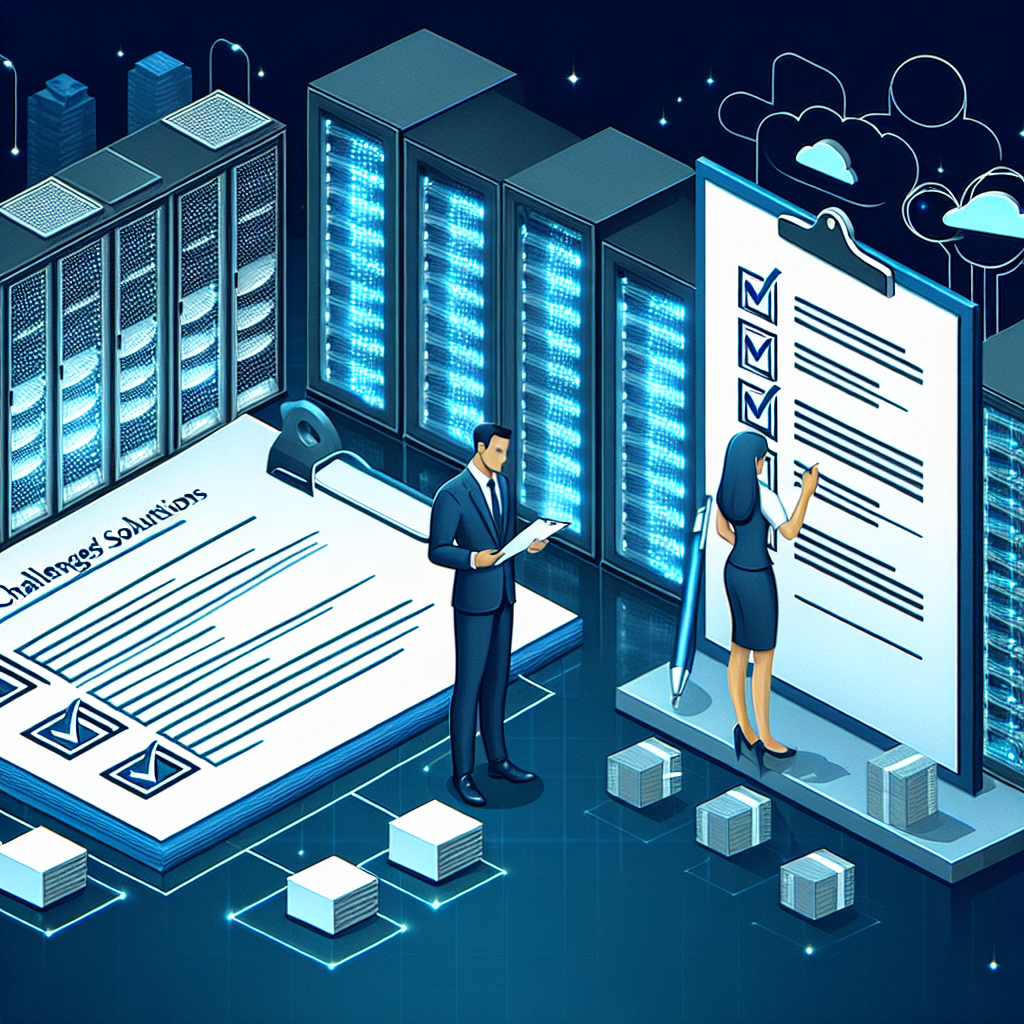Your cart is currently empty!
Data Center Compliance: Challenges and Solutions for Businesses

Data centers play a crucial role in modern businesses by storing, processing, and managing large volumes of data. As the amount of data generated by businesses continues to grow, so does the need for data centers to comply with industry regulations and standards to ensure the security and integrity of the data they handle. However, achieving and maintaining data center compliance can be a daunting task for many organizations, as it involves navigating through a complex web of regulations and standards.
One of the biggest challenges businesses face when it comes to data center compliance is the sheer number of regulations and standards they must adhere to. Depending on the industry, businesses may be subject to multiple regulations such as the General Data Protection Regulation (GDPR), the Health Insurance Portability and Accountability Act (HIPAA), and the Payment Card Industry Data Security Standard (PCI DSS), among others. Each of these regulations has its own set of requirements that data centers must meet to ensure compliance.
Another challenge businesses face is the dynamic nature of compliance requirements. Regulations and standards are constantly evolving to keep up with the changing landscape of technology and data privacy. This means that businesses must constantly monitor and update their data center practices to ensure they remain compliant. Failure to do so could result in hefty fines, reputational damage, and even legal consequences.
Fortunately, there are solutions available to help businesses navigate the challenges of data center compliance. One of the most effective solutions is to partner with a data center provider that specializes in compliance. These providers have the expertise and resources to ensure that data centers meet all the necessary regulations and standards. They can also help businesses stay up-to-date with any changes in compliance requirements.
Another solution is to implement robust data center security measures. This includes encryption, access controls, monitoring, and regular security audits. By implementing these measures, businesses can better protect their data and reduce the risk of non-compliance.
Additionally, businesses can invest in compliance management software to streamline the compliance process. These tools can help businesses track and manage compliance requirements, automate compliance tasks, and generate reports to demonstrate compliance to auditors.
In conclusion, data center compliance is a critical aspect of modern business operations. While achieving and maintaining compliance can be challenging, businesses can overcome these challenges by partnering with compliance-focused data center providers, implementing robust security measures, and utilizing compliance management software. By taking proactive steps to ensure compliance, businesses can protect their data, mitigate risks, and maintain the trust of their customers.

Leave a Reply